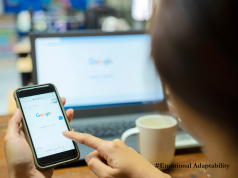In a world where the corporate mantra has often been ‘more is better,’ a quiet but powerful revolution is taking root. The classic definition of productivity – more hours, more output – is being meticulously unpicked, questioned, and reframed by a groundbreaking notion: mindfulness as the new efficiency paradigm. This new perspective is not just reshaping workplace expectations but is also heralding a new era of wellbeing and performance across the hustle of New York City.
The incessant quest for productivity has long been synonymous with success in the high-pressure environments of the Big Apple. Yet, as thought leaders in the space of workplace innovation, we must acknowledge the mounting evidence that the relentless grind leads to burnout, decreased job satisfaction, and ultimately counterproductive work behaviors. It’s high time we pivot and redefine what ‘being productive’ truly means.
**Mindfulness: The New Corporate Currency**
Mindfulness, the practice of maintaining a moment-by-moment awareness of our thoughts, feelings, bodily sensations, and surrounding environment, has proven to be the antidote to the chaotic work-life many have succumbed to. By cultivating mindfulness, individuals can develop a heightened sense of focus, resilience, and a profound ability to manage stress better.
Companies across New York are beginning to recognize the potent benefits of mindfulness. Giants like Google and Goldman Sachs have been front-runners, implementing programs to foster a more mindful workplace. These initiatives are not just feel-good exercises but strategic business moves. Mindfulness has been shown to reduce absenteeism, improve cognitive function, and strengthen employee morale – all of which contribute to the bottom line.
**The Tangible Benefits of Mindfulness**
When employees are less stressed and more present, they are not only happier – they are more effective. Data-driven studies indicate that mindfulness programs can lead to a myriad of advantages for both employers and employees. Enhanced decision-making capabilities, improved concentration, and better overall health are just a few of the reported benefits.
Moreover, at companies where mindfulness has become a core part of the culture, there is often a ripple effect that extends beyond individual gains. We see improved team dynamics, increased creativity, and a greater capacity for innovation. In essence, mindfulness helps unlock the full human potential within the workplace.
**Success Stories from the Pressure Cooker**
In the heart of New York’s financial district, a boutique investment firm has made headlines for its unconventional approach. By replacing traditional ‘power lunches’ with ‘meditation breaks,’ they’ve reported a sharp increase in staff productivity and a significant decrease in stress-related issues.
Similarly, an advertising agency in Midtown has swapped out Friday evening drinks for ‘mindful wind-downs,’ where employees engage in guided meditation and reflective practices to end the week. The result has been a more cohesive, inspired team that consistently outperforms competitors.
**Actionable Steps Towards Mindful Work**
For individuals looking to embrace mindfulness, starting small can lead to big changes. Begin with daily 10-minute meditation sessions or use mindfulness apps to guide your practice. Within the office, advocate for quiet zones or introduce ‘no interruption’ periods to allow for deep work.
Organizations seeking to integrate mindfulness can start by offering workshops or partnering with mindfulness coaches. Leadership should lead by example, embedding mindful practices into their management style and encouraging open discussions about mental health and well-being.
**Conclusion: The Mindful Path Forward**
As competitive as the landscape of New York business is, the tide is turning towards a more enlightened approach to productivity. Mindfulness is not just a buzzword – it’s a transformative tool that can lead to more sustainable success for both individuals and corporations. By taking intentional steps towards cultivating mindfulness in our daily workflows, we are not just enhancing performance; we’re fostering an environment where well-being and efficiency coexist harmoniously.




























